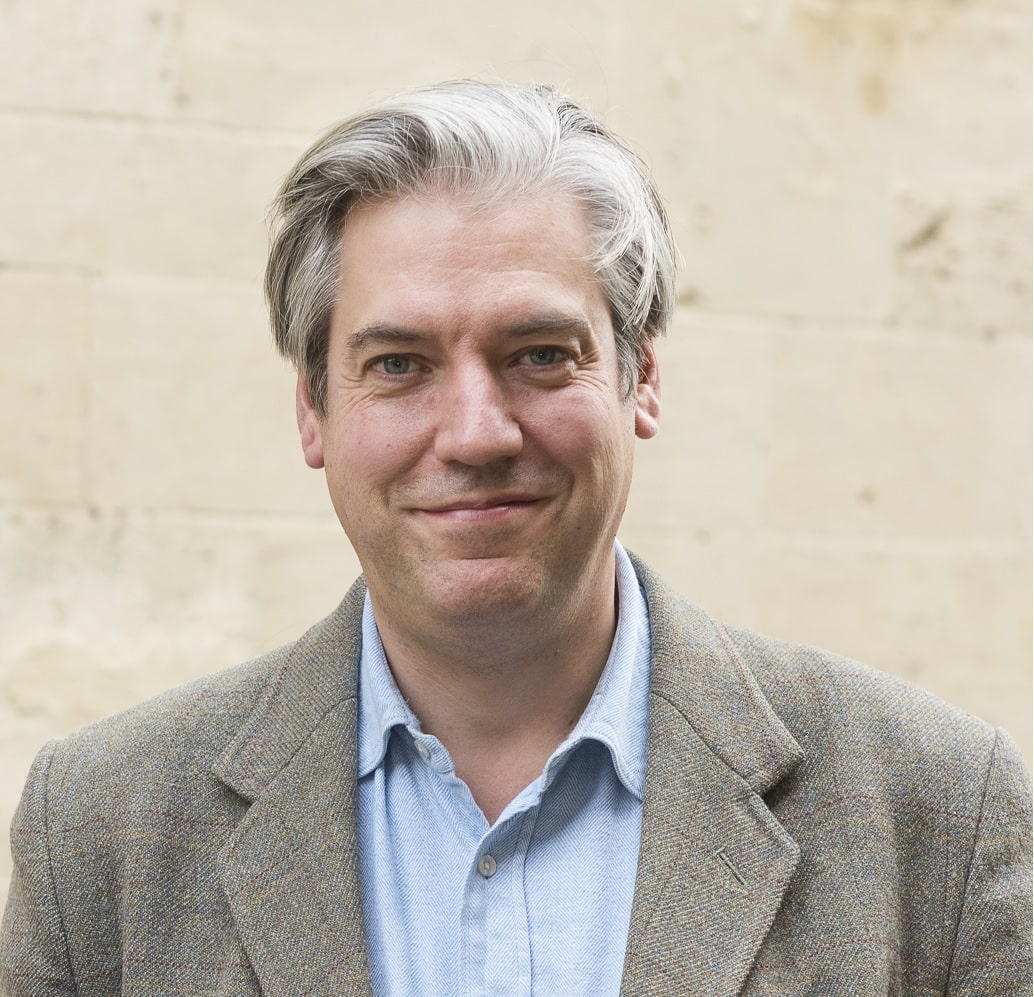Our People
Dr Tim Mawson

Dr Tim Mawson
- Edgar Jones Fellow and Tutor in Philosophy
- Dean, Prevent Lead
I first came to St Peter’s as an undergraduate and stayed on for my first postgraduate degree. I did go away for a little bit, for my doctoral studies. It was alright, but I don’t think I’ll go away again (until such time as I have to leave, summoned to join the even-more-exalted ‘College of St Peter’ above). I met my future wife when we were both students at the college and we now have two children and a dog. Outside of work, I’m usually with them and usually enjoying it.
Teaching
In recent years, I have tended to focus my teaching on the Philosophy of Religion and Value Theory. I teach for ‘The Philosophy of Religion’ paper and the ‘Ethics’ and the ‘Aesthetics and the Philosophy of Criticism’ papers. I also teach an introductory course on Moral Philosophy, based on Mill’s ‘Utilitarianism’, to our first-years and such visiting students as wish to take it up.
Most of my students are from St Peters, but I also do some teaching for other colleges, either in exchange for SPC students sent out, or for the BPhil in Philosophy or the MSt or MPhil in Philosophical Theology. What I enjoy most about teaching at Oxford is the tutorial system, an essential insight behind which (viz. that it’s only by subjecting one’s opinions to the closest of cross-questioning and counter-argument that one gets to own [as in have a right to] them, rather than merely happen to possess them) dates back at least to Socrates and the ‘tutorials’ which he gave. It’s a pleasure and a somewhat-intimidating honour to find myself continuing that tradition as best I’m able.
Research
I have quite broad interests within Philosophy – I have written five books and fifty or so papers over a wide range of topics, though most fall within the general area of the Philosophy of Religion. At time of writing, my most recent work has been on the question, “What is the meaning of life?”. This is arguably the question that most lay-people would think must form a chief focus of the work of all of those who style themselves professional philosophers. But, until relatively recently, hardly anybody who called themselves a professional philosopher had worked on the question “What is the meaning of life?” at all.
Why was that? And why did it change? Because it has changed. The meaning of life is currently one of the fastest-growing areas in the discipline. How is the question, “What is the meaning of life?” now understood? How might our understanding of it be improved? If there were a God, would that make a difference to life’s meaningfulness? If so, how so? If not, why not? In a series of works - the most substantial of which was my 2016 book, ‘God and the Meanings of Life’ - I’ve been charting the answers to these and related questions.
It may not surprise you that I haven’t yet plumbed the depths of the topic of life’s meaning. It may surprise you that I haven’t even yet plumbed the relative shallows of what it is that I think I might helpfully contribute. In any case, because of this, I anticipate that I’ll continue to work in this area for at least a little while yet.
The Dean
As the Dean, I oversee the work of the Decanal Team, which has responsibility for non-academic disciplinary matters. The team has responsibility for students (Junior and Middle Common Rooms) and works in parallel with, but separately from, the Welfare Team, overseen by the Dean for Welfare. The Decanal Team ensures the enforcement of the College Regulations, outlined in the Student Regulations.